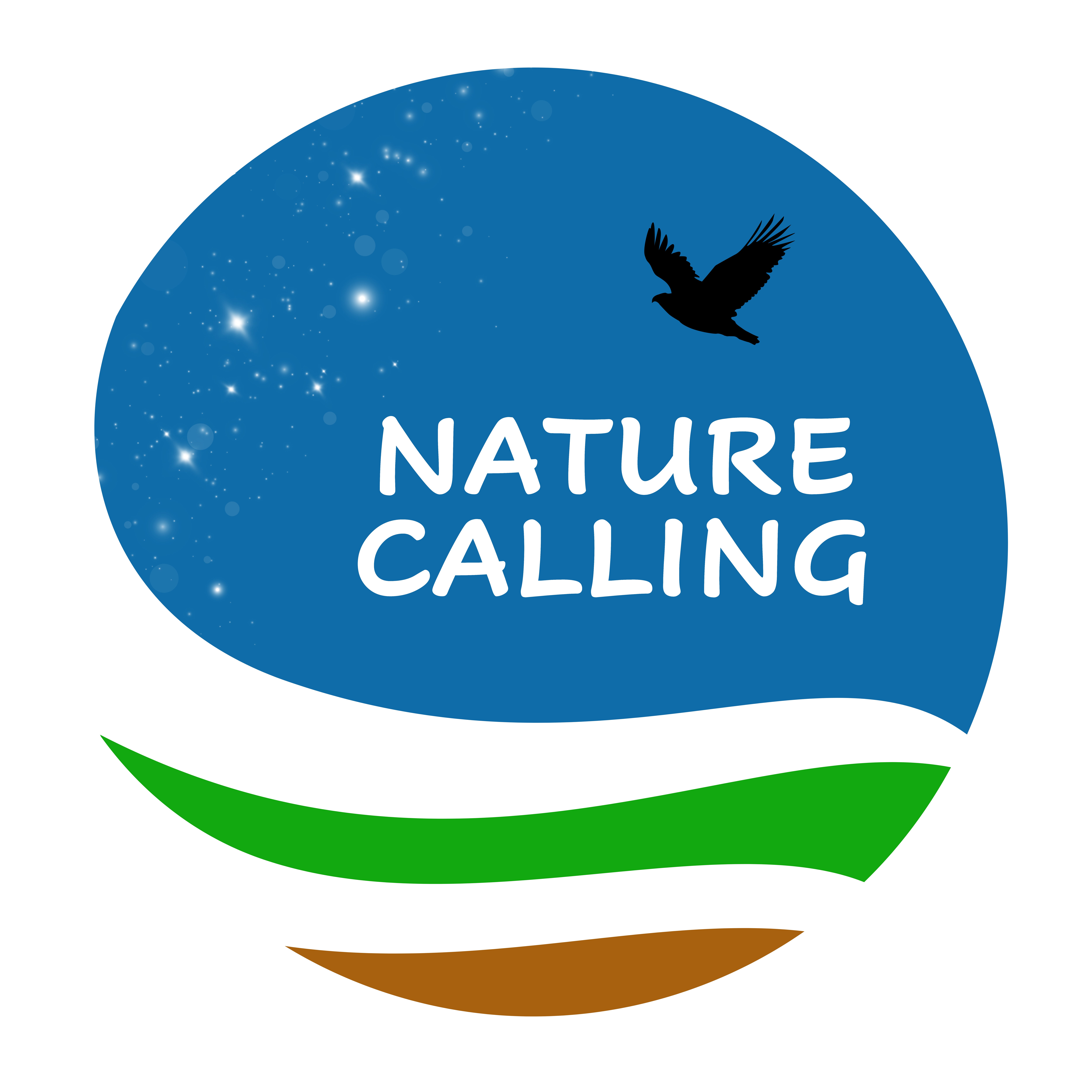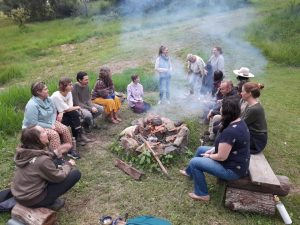
Nature Calling was founded in Australia by Dr Geoff Berry in 2017, who has been training practitioners in Ecotherapy and Applied Ecopsychology since 2019.
Dr Geoff Berry, the Australian Representative to the IES, has built a trainingthat meets the rigorous standards of the IES and its form of AppliedEcopsychology, Ecotuning. The basic outline can be found at his website,Nature Calling.
His Advanced Ecotherapy Training Course (AETC) provides graduates with theknowledge and practical skills to facilitate outdoor activities, or bring natureinto the clinic, thereby enriching their already existing practice. The AETC isonly open to those already proficient in some field of counselling,psychotherapy, coaching or other helping profession (not to the public at abasic beginner’s level). Geoff’s approach is phenomenological, in that hetrains practitioners to become an Ecotuner from their own embodiedexperience of a deep relationship with nature.
The AETC is delivered online over 8 months and includes a 5-day retreat onCountry, where participants engage in therapeutic applications of theEcotuning training. Professional supervision as well as clinical supervision areprovided as part of the course, helping each participant to develop clinicalskills as well as interpersonal and communication skills of the Ecotuner, onbehalf of the wider vision of self and Planet shared within the IES.The AETC provides the same general outline as other IES Ecotuning schools,as follows.
- The theory of ecopsychology
The theory and history of Ecopsychology, including readings by anddiscussions of significant authors and teachers in the movement such asTheodore Roszak, Joanna Macy, Paul Shepard, Arne Naess, Thomas Berry,Aldo Leopold, E O Wilson, Fritjof Capra, Rupert Sheldrake, James Lovelockand Gregory Bateson. Further explorations follow philosophical and ethicalthemes such as Deep Ecology, Ecojustice, Biophilia, Depth Psychology,Ecofeminism, Gaia theory.
Particular strengths follow Geoff’s specific areas of expertise in depthpsychology, mythology, symbols, indigenous epistemologies, shamanic artsand awareness practices (specifically Zen). Discussions include Carl Jung,Eric Fromm, Joseph Campbell, Mircea Eliade, James Hilman, as well asexistential and transpersonal philosophers such as Abraham Maslow, CarlRogers, Roberto Assagioli, Viktor Frankl, Ken Wilber, Stanislav Grof and FritzPerls.
- Personal growth
Paths of self-knowledge, including specific focus on people’s awareness ofnatural light and darkness, which operate in parallel with their insights intotheir psyche and its Shadows, levels of self-identification and disidentification or dissociation, emotional intelligence, ability to recognize andwithdraw projections, managing emotions, managing stress, and all of theseincorporated into an ongoing process of building an ecological self.
- Ecopsychology experiential seminars in nature
Ecopsychologically oriented experience in the natural environment,exploration of all of the 5 senses and more, including peripheral and subtleawareness’s, creative activities (ecoart, dance, song, ecopoetry, creativewriting) all form part of this training, as do quests in the wilderness, day andnight walks, training each participant’s sense of orientation, centring and thepractice of green mindfulness. Practices include dialogue with theenvironment, including with plants, animals places and elements, in atotemic framework designed to support participants in the ways they canlearn from and feel informed by the intelligence of nature.Ecopsychotherapy session include practices of counselling and greencoaching, specifically walking and talking therapy with a strong focus on thequestion: “why does this issue or theme arise in this place at this time?”Each participant is also placed in groups for the sharing of their experiencesand activities, both in online classes and during the onCountry trainingevents (retreats and workshops).
- Practice of Ecotuning and Art of Communication
The AETC introduces examples of activities, games and rituals designed toaid in the facilitation of groupwork, including managing conflicts, organizingand promoting events and building ecotherapy businesses. Public speakingand educational skills workshops are offered, along with supportivefeedback. The course focuses on helping participants to make Ecopsychologya way of their everyday life in the modern world, as well as building theirconfidence to offer this service to their clients.
- Participation in Ecotuning events and workshops
Geoff offers professional development throughout the course, but especiallytowards the end and after graduation, when he guides graduates to designand conduct their own Ecotuning event or workshop. The project will besupported by Geoff and his team, who will also provide feedback after theevent. The cohort will be invited to attend and to provide peer feedback also.
In order to complete the course and graduate from the Advanced EcotherapyTraining Course with an Ecotuner diploma, participants will have engaged inat least 270 hours of training plus the final project, with a minimum of 50hours per training section.

| Training/engagement | Hours | Total Hours |
| Online sessions led by Geoff | 4 hours pcm | 32 |
| Independent work doing practical activities and recording results | 3 hours per week over 32 weeks | 96 |
| working onassessment projects and peer group feedback | 3 hours per week over 32 weeks | 96 |
| 4.5 days on Country in person training with the group | 48 hours of training | 48 |
| Total hours of training | 272 |
Graduate projects, events and workshops follow thetraining and can be completed in the participant’s own time, as long as theyare completed in the year following the end of the training component.
Explore the entire Training program on Nature Calling website


It is possible to participate in individual IES Training modules and complete the training in another IES School. Check out the schedules of all the IES School accredited to provide the necessary training to enter the Register of Ecotuner (IRoE) and become accredited IES member.






